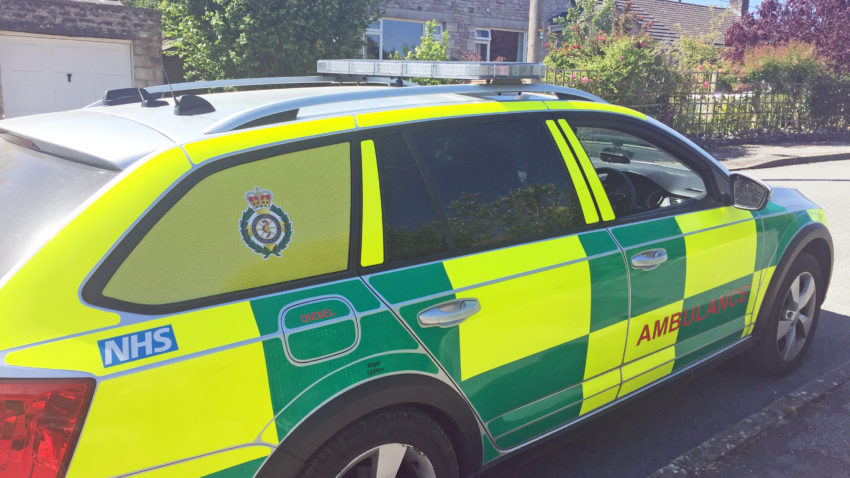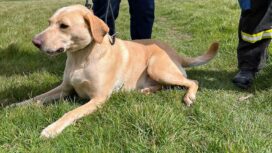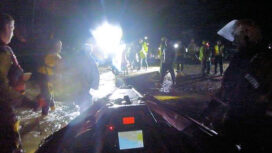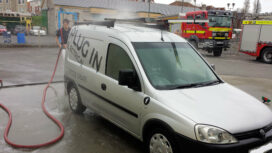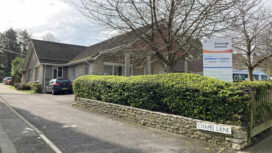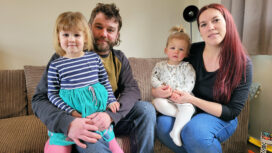The power of a community, united behind the single cause of keeping the Swanage Ambulance Car in Purbeck, has been credited for the decision by NHS bosses to retain the life saving resource.
The Swanage-based ambulance car, which is often the first to arrive at the scene of a medical emergency in Purbeck, had been under threat of being scrapped since April 2020.

The community made sure its voice was heard, not just in protest but in song!
Torrent of overwhelming relief across Purbeck
The news that Dorset Clinical Commissioning Group (CCG) and the South Western Ambulance Service (SWASFT) have now said that the service will continue as a 24/7 car, has been met with a torrent of overwhelming relief across Purbeck.
The ambulance car service is usually driven by a paramedic and can respond quickly to emergency calls in Swanage and the surrounding area, as it rarely takes patients to hospital, unlike an ambulance, so it can stay within Purbeck.
It also covers the local doctors’ home visiting service and provides night time cover, when the minor injuries unit at Swanage Hospital is closed.
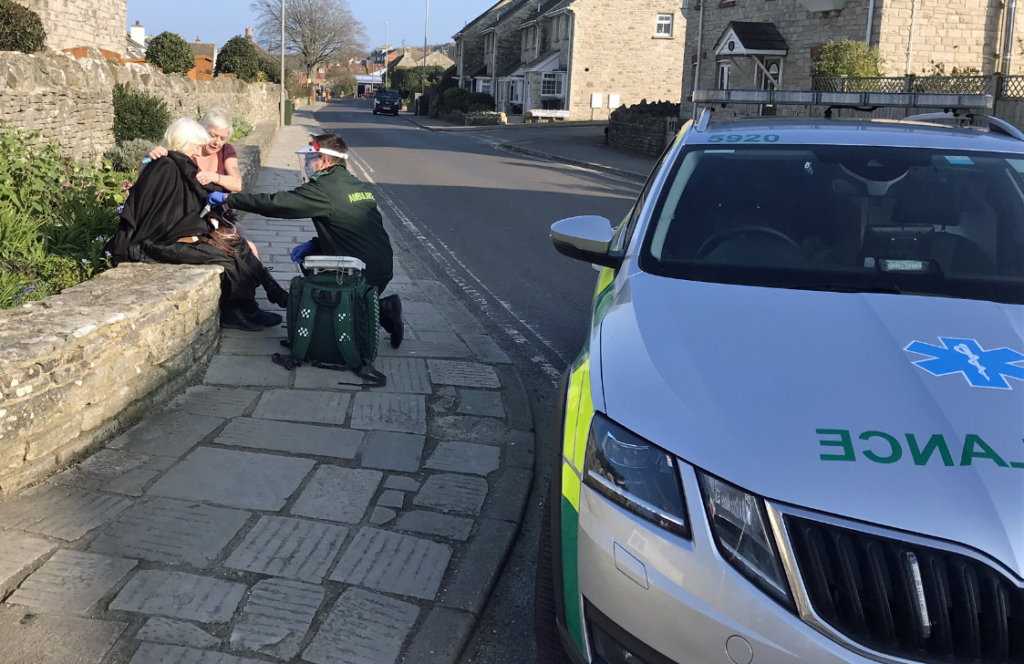
The Swanage Ambulance Car, when fully staffed, is often first on the scene at medical emergencies in Purbeck
Staffing of the car remains an issue
Issues still remain over the staffing of the car, after a freedom of information request revealed that while the car had not been officially withdrawn, it was increasingly being left unstaffed.
Dorset CCG and SWASFT in their joint open letter to residents said:
“As previously stated, SWASFT, along with all health and social care providers, is continuing to be impacted by the inevitable increases of staff absences as a result of the COVID-19 pandemic.
“We would like to provide assurances to the communities that we are working hard to address this and to improve the staffing of the car moving forward.”
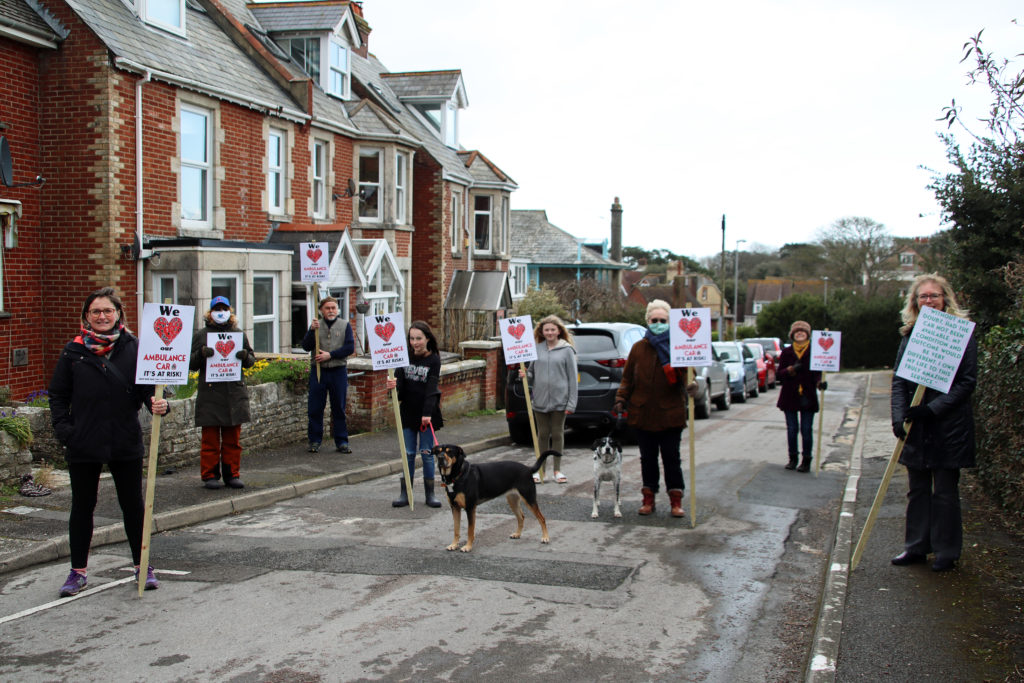
When the campaign launched, posters, placards and banners were spotted across Purbeck
“When the ambulance car is properly staffed, it saves lives”
Posters, banners, a booklet of people’s stories, a children’s trail and even a song were all part of the high profile campaign to save the ambulance car.
Leading the local protest was councillor Debby Monkhouse from Swanage Town Council. Responding to the news, she said:
“It’s fantastic! I really welcome the news, however I’d like to be reassured that it will now be properly staffed, in line with the rest of SWASFT’s resources in Dorset.
“Along with the other Swanage Town councillors, I’m asking for a regular monitoring report from SWASFT so we can see the number of callouts, how it’s being staffed and the emergency response times.
“When the ambulance car is properly staffed, it saves lives. We just can’t afford to lose this service!”
“Two cheers for now – hopefully three very soon”
Councillor Bill Trite, who represents Swanage on Dorset Council added:
“It’s very good news – a life-saver saved, or so it appears. The particular circumstances which make the ambulance car so essential for Swanage means that this campaign should never have had to be undertaken in the first place.
“We still need to ensure that the car will be resourced and available on the same basis as it was prior to last year, before it was under-staffed. So two cheers for now – hopefully three very soon.”
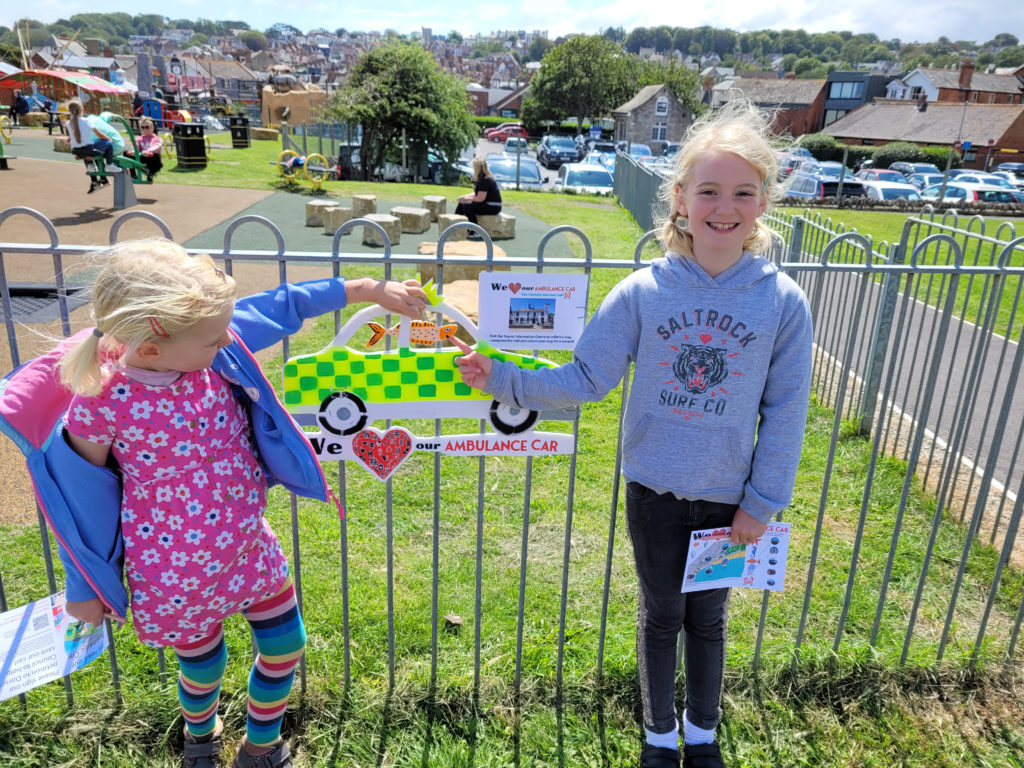
The children’s ambulance car trail engaged the whole community in the campaign
“It’s a good day for Swanage and Purbeck!”
A petition to save the ambulance car was launched back in 2020 by Mel Norris from the Swanage Area Forum, when it was first revealed that there were plans by Dorset CCG and SWASFT to withdraw the car. It now has more than 8,000 signatures.
Mel Norris said:
“It just goes to show what can be achieved when a community pulls together. A common cause has united us, irrespective of our politics. It’s a good day for Swanage and Purbeck!
“A small committee doggedly kept the campaign going and praise and thanks must go to Debby Monkhouse for never giving up.
“There’s also Chris Brady and Thelma and Andrew Deacon who have helped considerably – Andrew is mostly responsible for all the campaign placards and posters across Purbeck!
“We also had generous donations for all the banners and I mustn’t forget Laura Rowan who designed the eye-catching poster and the children’s trail, as well as creating the website.
“There’s plenty of others too – from the Swanage Town Clerk to anyone who signed the petition. What a team!
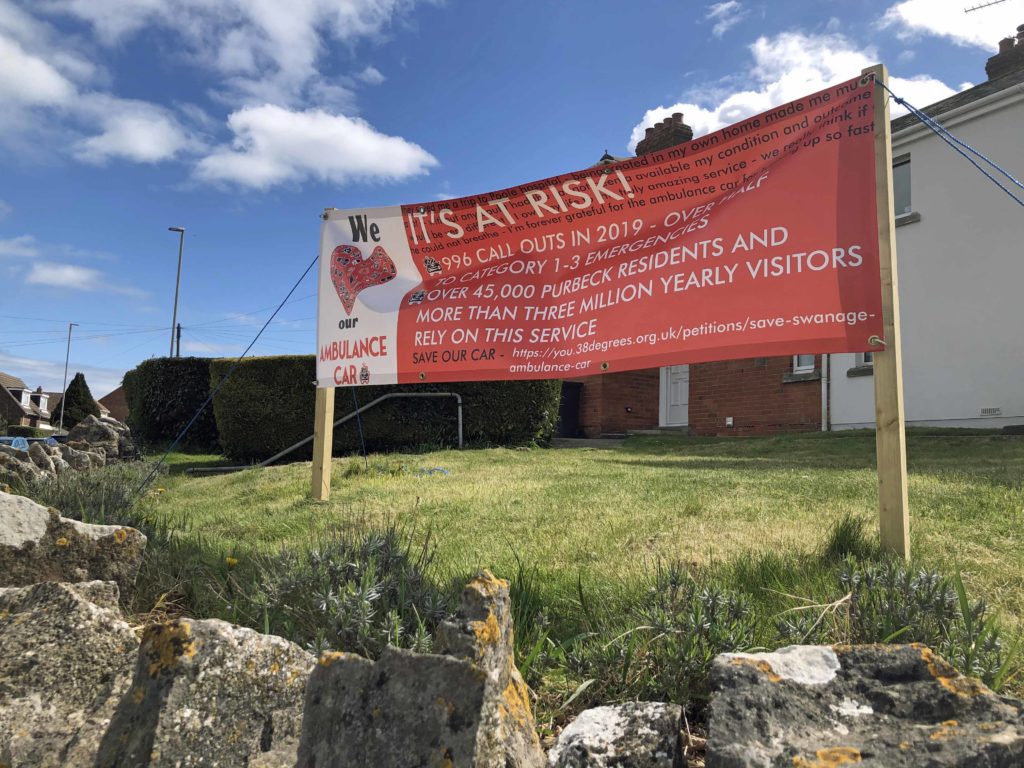
Any visitor to Swanage couldn’t help but be aware of the issue
“Residents and councillors working together”
A spokesperson for Swanage Town Council added:
“The town council warmly welcomes the announcement from the CCG. Over the last two years, the council has made every effort to use its influence to preserve the paramedic car as a life-saving service for local residents.
“Many hours have been spent by councillors and officers attending meetings and writing letters to our local MP, Dorset Council, the NHS and the ambulance trust.
“The council would like to thank every member of the local community who added their voice in support of this outcome.
“Residents and councillors working together have made it very clear that the ambulance car is an essential part of local healthcare provision which must be protected.”
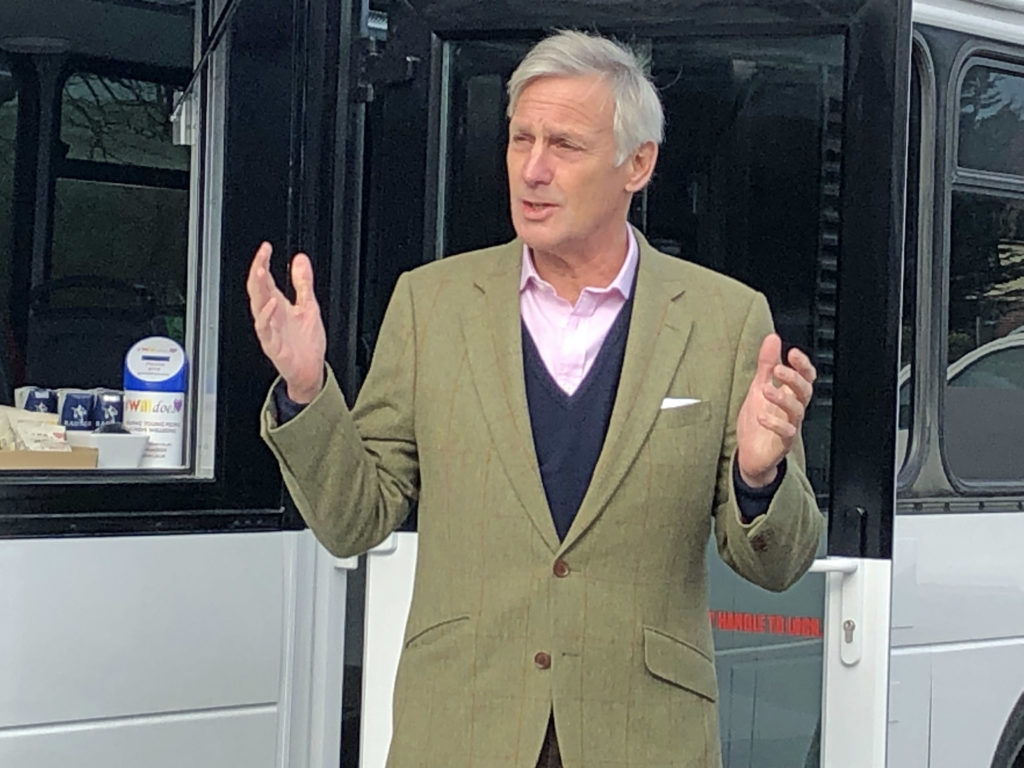
Local MP Richard Drax said he believed the decision was in response to the community’s passionate response
“I nearly fell off my chair!”
Frustrated by the continuing threat to withdraw the service, many residents and local representatives wrote to their local MP voicing their opposition to the withdrawal of the car and calling on him to defend their cause
Richard Drax, MP for South Dorset responding to the announcement said:
“I’m delighted! When I heard the good news I was gobsmacked and I nearly fell off my chair! Without doubt Dorset CCG and SWAST have done the right thing.
“I had prepared myself for bad news but when they said they were keeping the car, I told them how happy they had made me and how happy all my constituents would be.
“I genuinely believe that they responded to the passion of the people and when presented with such solid evidence of how essential the car was to Purbeck, it was difficult for them to come to any other conclusion.
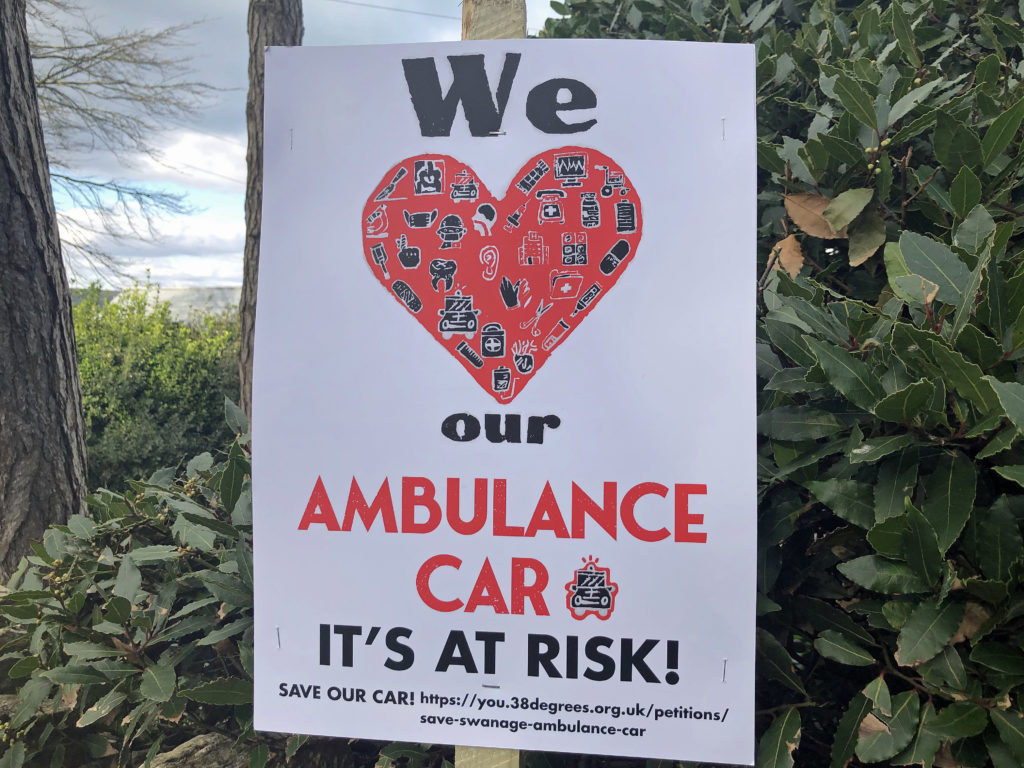
Posters popped up across Purbeck
“Removal of this service would have severely reduced the help available to local communities”
Richard Drax added:
“The ambulance car provides invaluable reassurance, every hour of every day, to residents of Purbeck and Swanage. It has long been clear to me that the removal of this service would have severely reduced the help available to local communities and I have backed the campaign to retain it to the hilt.
“Purbeck and Swanage are already at the end of the line geographically, and the knowledge that there was expert healthcare available, when it takes at least 45 minutes to reach the two nearest general hospitals, was comforting for many.
“I understand that the CCG’s and ambulance service’s response to their listening exercise has been severely delayed by the impact of Covid and the vaccine rollouts, which has of course, increased local anxiety.
“I can only say how delighted and relieved I am that they have reached this decision and thank them.”
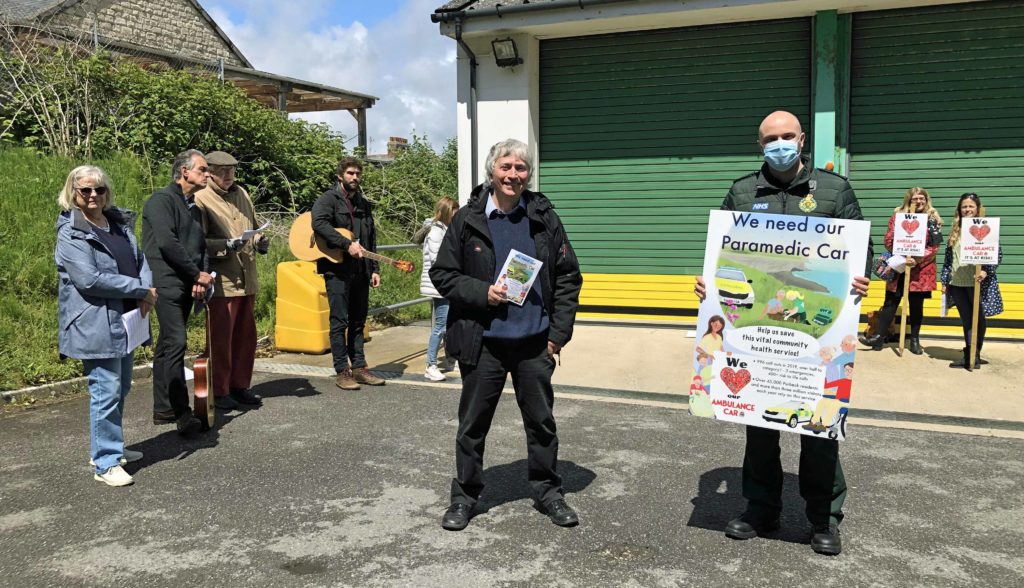
Lawrie Sandford, who credits the ambulance car with saving the life of his son, presented SWAST’s Craig Martin with the cover of the booklet telling the stories of the many people who have benefitted from the ambulance car
“We know the service is vital for the local community”
Dorset Council, which has a statutory duty to scrutinise changes to health services, recently wrote to Dorset CCG asking for reassurance that there would not be any cuts to the service, or alternatively, to give the council their proposals for a public consultation on the matter.
Chair of the Dorset Council’s people and health overview committee, councillor Mike Parkes said:
“We are delighted to have received news from the CCG that there will be no cuts to this service and the ambulance car will continue to serve the community in future.
“We know the service is vital for the local community and surrounding villages, administering lifesaving support long before a conventional ambulance can reach many emergency cases.
“There is also a considerable distance to A and E facilities, and a high population of elderly and vulnerable residents.”
